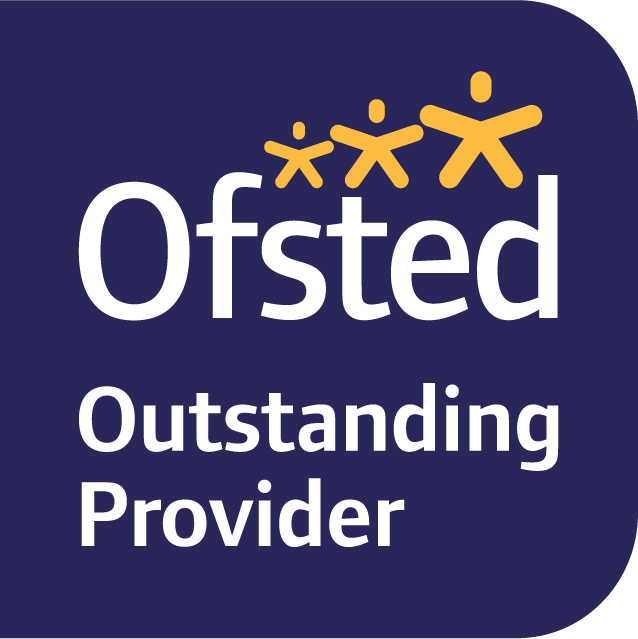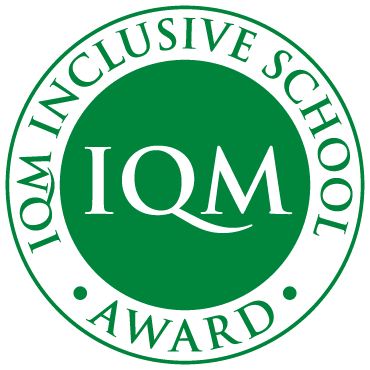Children's learning and our teaching
You can read about what we hope children will learn with us, how we teach and why we teach this way on our Curriculum and pedagogy page.
Jump to:
- How children learn
- The Early Years Foundation Stage
- How we teach
- Curriculum plans for this term
- Each child has a Key Person
- Learning journeys
- Extra support if children need it
- Finding out how your child is doing
- Tales Toolkit
- Words to build confidence
How children learn
Young children learn maths, science, art and PE through playing with real objects as well as toys, for example maths and PE happen when you count how many times you can hop, science and cooking are found in mud pies.
If children are given space and time to play, they experiment, guess, solve problems, describe, and tell stories. They practise, control and manipulate, gain technical expertise, and share their knowledge. They think and make links with earlier learning, create and imagine, overcome frustrations, experience amazement and enjoyment, co-operate with others, concentrate and persevere.
The habits of self-direction, curiosity, motivation, concentration, exploration, experimentation and excitement to learn are the foundations of life-long learning and resilience.
The Early Years Foundation Stage
The Early Years Foundation Stage Framework is the National Curriculum for children aged 3 to the end of the first year primary school, and we use it to plan how the nursery is resourced, organised and structured. It is divided into 7 areas of learning: the prime areas of Personal, Social and Emotional Development, Language and Communication, and Physical Development feed into the other specific areas of the curriculum:

Each area has a number of Early Learning Goals which we aim to support children to meet by the end of their reception year.
How we teach
At the start of each term the teaching team makes the curriculum plans for each week of term, and maps them against the 7 areas of the EYFS. These set out the curricular goals, celebrations and books that will form the framework of teaching for that term, as well as any particular projects that need advanced planning. Download the curriculum plans at the bottom of this page. We also display them in school, next to the staff room door.
Every week the team meet to discuss how we can teach the curricular goal planned for that week in the way that will support and stretch the needs of the children at that time.
Two types of learning happen every day:
- Child-initiated learning, where the children have independent, 'free-flow' use of the equipment, activities and space, allowing them to explore their own interests, nourish their natural love of learning and help them build resilience by taking child-sized risks.
- Adult-led learning, in which the children are invited and encouraged to join the activities that staff have devised to extend their learning and support their needs. The teaching team introduce new skills and techniques, and encourage the children to think and talk about what they are doing by asking open questions and helping the children to find answers.
Read more about how, as well as what and why we teach this way on our Curricular Goals and pedagogy page.
Forest School learning: our accredited Forest School leader takes groups of children to our dedicated Forest School Activities area. All children have a block of 6, weekly visits during their time at Low Hall.
Snack time learning: our snack table is open for most of each session. It is a horse-shoe shaped table, with an adult sitting in the middle, modelling mindful eating. Children go wash their hands, then sit down to have a snack. With the grown up's support they practise turn taking, sharing, maths (counting, adding, subtracting, dividing....), literacy (names of things and colours...), as well as having a healthy snack.
Outside: there are always at least two members of staff working with the children outdoors.
Each child has a Key Person
Each child in the nursery has one special member of staff, their Key Person, who has specific responsibilities for that child and their family while they are with us. If you have an established friendship with a member of staff, they will not be your child's Key Person. Our Assistant Head, Lindsay, allocates Key People.
Your Key Person will:
- complete an entry profile with you to enable us to get to know your child
- help your child to settle in
- be the person you talk to if you have any concerns or questions about what we are teaching
- meet with you to discuss your child’s progress
- make observations, take photographs, gather samples of work and plan for you child’s progress
- gather information from other members of staff, and share information with them about your child to help them move on in their learning
- write a record of your child’s achievements whilst at the nursery
- oversee your child’s transition to infant or primary school.
Your child’s Key Person is very important, however all staff are responsible for all the children, and your child will get to know and feel secure with most if not all the teaching team. If you need to talk to someone and your child’s Key Person is not available, another member of staff will be able to help you.
Learning Journeys
Staff gather evidence of how their Key Children are progressing towards the Curricular Goals by spending time watching them and working with them, taking photos (with permission), and making notes on what they do.
These observations are put in the children’s Learning Journeys, which are stored on open shelves in the school. We ask parents and carers to contribute to these books so that they become a record of a child’s development outside as well as inside school.
Extra support if children need it
If the team thinks a child might have particular additional needs, their Key Person will begin a conversation with the child’s family to work out ways to support the child both in school and at home. This is a collaboration between school and home, and we always consult parents before we seek support from outside agencies and support services.
You can find the details of organisations and ideas you might find useful here.
Finding out how your child is doing
Learning in school goes hand in hand with learning outside school, and we want to communicate with parents and carers as much as possible. We also want our staff to spend as much of their time as possible helping the children learn.
At the end of each term we email families an outline of how their child is progressing towards the Curricular Goals.
Day to day, or week to week:
- At any point you can ask to speak to your child’s Key Person at the end of the session
- If this isn’t an option for you, you can email your child’s Key Person, or arrange a catch-up by phone. Ask in the school office for their email address.
- Ask to see your child's Learning Journey, and contribute to it, so that we can collaborate.
In the autumn and summer terms we organise meetings between all parents and carers and their child’s Key Person.
Tales Toolkit
At Low Hall and Church Hill we use a resource called Tales Toolkit to help all children develop their story-telling abilities, and with that, their language and communication skills. You could experiment with using the same words (character, setting, problem, solution), and see if this leads to longer or different conversations at home. It just might...

Words to build confidence
The words we use to describe to a child what they are doing can build confidence. Try using some of these:
| Active | Gentle | Affectionate |
| Graceful | Artistic | Healthy |
| Assertive | Helpful | Calm |
| Imaginative | Careful | Intelligent |
| Caring | Kind | Clever |
| Lively | Confident | Loving |
| Considerate | Mathematical | Creative |
| Musical | Curious | Outgoing |
| Determined | Peaceful | Energetic |
| Persuasive | Entertaining | Polite |
| Enthusiastic | Quick | Expressive |
| Scientific | Funny | Strong |
| Friendly | Thoughtful | Generous |
| Warm |
Taken from: Nicola Call, The Thinking Child Resource Book: Brain-based learning for the early years foundation stage (Bloomsbury Publishing, 2010)






